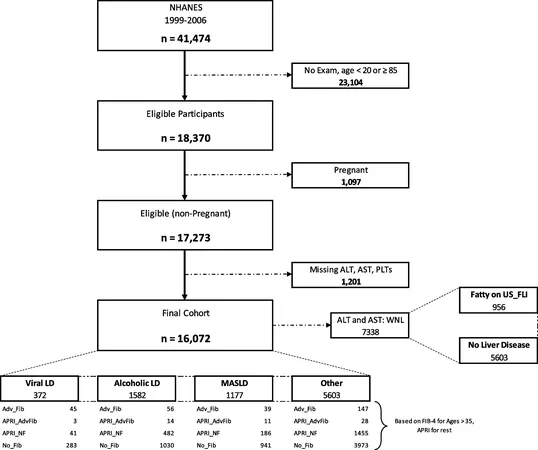
Breakthrough in Understanding PTSD: Stressed Mice Reveal How Memories Become Generalized Fears
2024-11-16
Author: Wei
Breakthrough in Understanding PTSD: Stressed Mice Reveal How Memories Become Generalized Fears
In a groundbreaking study conducted by scientists at the Hospital for Sick Children (SickKids), researchers have made significant strides in understanding how stress alters the way our brains encode and retrieve fearful memories—a mechanism that may be linked to post-traumatic stress disorder (PTSD). Led by Sheena Josselyn, PhD, and Paul Frankland, PhD, this research sheds light on the role of endocannabinoid (eCB) signaling in the generalization of aversive memories induced by stress.
“A moderate amount of stress can be beneficial; it helps us rise to the occasion during challenging tasks. However, excessive stress can lead to debilitating consequences,” explained Josselyn, who is recognized for her work on the circuit basis of memory. The findings revealed important insights into how individuals with PTSD might erroneously react with fear even in safe conditions—an alarming symptom that could potentially be mitigated through new therapeutic strategies.
This study, published in the journal Cell under the title “Stress disrupts engram ensembles in lateral amygdala to generalize threat memory in mice,” reveals a deeper understanding of how stress influences memory circuits and presents potential new avenues for treating anxiety and stress-related disorders.
One notable experiment involved training mice to associate two distinct sounds with either stress or safety. The results were telling: the mice exposed to a stress-inducing environment could not differentiate between the sounds, reacting defensively to both, whereas those that remained unexposed exhibited appropriate defensive behaviors only to the stress-associated sound. This suggests that stress can broadly compromise the specificity of memory formation.
Analysis revealed that high levels of the hormone corticosterone were present in the stressed mice. Further studies showed that administering corticosterone prior to the training similarly hampered memory specificity, but when scientists used metyrapone to inhibit glucocorticoid synthesis, the stressed mice regained their ability to form distinct memories.
In discussing how memories are formed, the researchers noted that specific memories are encoded by groups of neurons known as engrams. Stress appears to enlarge these engrams, leading to a lack of specificity in memory formation, thereby promoting the overgeneralization of fearful memories—a common issue in PTSD and generalized anxiety disorder.
Additionally, the endocannabinoid system, which plays a pivotal role in enhancing memory formation, becomes overwhelmed under stress conditions. The researchers found that manipulating endocannabinoid receptors in the amygdala—the brain's emotional processing center—restored memory specificity. “By targeting the endocannabinoid receptors in specific neuron types, we could significantly reduce the formation of generalized, aversive memories,” noted Matthew Hill, PhD, another senior author on the study.
The implications are profound. "This phenomenon can potentially guide the development of treatments for PTSD by blocking the conditions that lead to the formation of generalized fear memories," said Hill. Additionally, as they move forward, the researchers aim to explore whether stress also diminishes the specificity of non-aversive memories and whether substances like cannabis could affect memory processes similarly.
Dr. Frankland expressed hope for the future, stating, “As we delve deeper into the intricate workings of human memory, we can lay the groundwork for therapies that could alleviate various psychiatric disorders.” The ongoing research not only provides insights into the brain's reaction to stress but also highlights the complexities surrounding the treatment of PTSD.
In conclusion, this research not only clarifies how stress induces generalized fear responses through memory alteration but also opens the door to potential new treatments. The search for answers continues, and scientists are eager to discern how these findings could transform therapeutic interventions to relieve the burdens of PTSD and stress-related disorders.


 Brasil (PT)
Brasil (PT)
 Canada (EN)
Canada (EN)
 Chile (ES)
Chile (ES)
 España (ES)
España (ES)
 France (FR)
France (FR)
 Hong Kong (EN)
Hong Kong (EN)
 Italia (IT)
Italia (IT)
 日本 (JA)
日本 (JA)
 Magyarország (HU)
Magyarország (HU)
 Norge (NO)
Norge (NO)
 Polska (PL)
Polska (PL)
 Schweiz (DE)
Schweiz (DE)
 Singapore (EN)
Singapore (EN)
 Sverige (SV)
Sverige (SV)
 Suomi (FI)
Suomi (FI)
 Türkiye (TR)
Türkiye (TR)